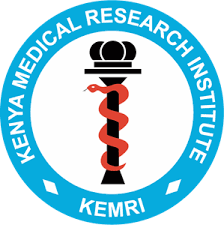The team
Dr. Lilian Otiso, Executive Director, LVCT Health and Principal Investigator for the C-it DU-it Project
Dr. Lilian Otiso is Executive Director of LVCT Health, a Kenyan NGO that carries out research and implements HIV, sexual and reproductive health, maternal and child health, sexual violence prevention, mental health, health systems strengthening and community health programs reaching over 1 million individuals across Kenya annually. She has managed grants from various donors including USAID, CDC, UK government, UN agencies and various foundations. She is a Medical Doctor with an MBA in Health Care Management with over 15 years’ program management and research experience in government and NGO sectors. She is currently pursuing a PhD in Global Health at the Liverpool School of Tropical Medicine. She is a fellow of the inaugural Obama Foundation Leaders: Africa 2018 program and winner of the Trocaire Oscar Romero award 2021 for protecting vulnerable communities during COVID-19. She is a member of various national and international technical working groups, has contributed to Kenyan and global WHO guidelines and provided technical support for policy development. She has published several peer reviewed articles and documents.
Dr. Hellen Barsosio, KEMRI, Co-Principal Investigator for the C-it DU-it Project
Dr. Hellen Barsosio is one of the Co-Principal Investigator for the C-it DU-it: Community Data Use for Integrated ANC project. In her role as Assistant Principal Clinical Research Scientist at the Kenya Medical Research Institute’s Centre for Global Health Research (KEMRI-CGHR), she brings extensive experience leading maternal and newborn health research. Under the C-it DU-it project, Dr. Barsosio collaborates with LVCT Health and other partners to co-design and implement innovative community-based interventions aimed at strengthening health systems and improving the quality and accessibility of maternal healthcare. Her work emphasizes the pivotal role of community health systems in advancing maternal health outcomes, particularly in resource-constrained settings. Dr. Barsosio is also a Calestous Juma Science Leadership Fellow (2025–2030), further highlighting her commitment to advancing science, innovation, and leadership in global health.
Professor Miriam Taegtmeyer, LSTM UK, Co-Principal Investigator
Prof Miriam Taegtmeyer is the Head of the Department of Clinical Sciences and co-Director of the Institute of Resilient Health Systems at the Liverpool School of Tropical Medicine. She works as a consultant physician specializing in infectious diseases. Trained in infectious diseases, public health, and education, she possesses a unique combination of skills that enable her to design and lead high-quality implementation research, bridge disciplines, and facilitate networks at the interface between the community and health systems.
Her publications on new diagnostic tests, cost-effectiveness, demand creation, community outreach, and appropriate models of service provision have informed WHO policies and Ministry of Health guidelines on HIV testing, lung health, vaccine hesitancy, and community health in sub-Saharan Africa. She has proactively created opportunities to transfer lessons from the Global South to the Liverpool context—such as introducing rapid HIV tests to Liverpool, applying lessons learned to the Liverpool COVID-19 response, adapting community-led approaches to improve vaccine equity in Liverpool, and hosting a high-profile exchange program for Kenyan and UK local governments.
She is known for her mentoring approach, strong people skills, and significant leadership and management experience, including establishing and running a large Kenyan NGO and leading several multi-county studies. In 2015, she was honored to be included in the Graduate Institute’s list of 300 Women Leaders in Global Health.
Her international research focuses on strengthening healthcare systems to deliver high-quality, equitable care, even during times of crisis. She explores ways to improve and increase access to healthcare services—such as HIV treatment, vaccinations, antenatal care, and chronic disease management—especially for underserved communities.
A key aspect of her work involves understanding how health systems prepare for and adapt to challenges like pandemics, economic pressures, or natural disasters. She studies how these systems can maintain essential services while evolving to meet changing needs. By identifying and promoting effective strategies, her research aims to help policymakers, healthcare providers, and communities build more resilient systems that ensure everyone receives the care they need, regardless of the circumstances.


